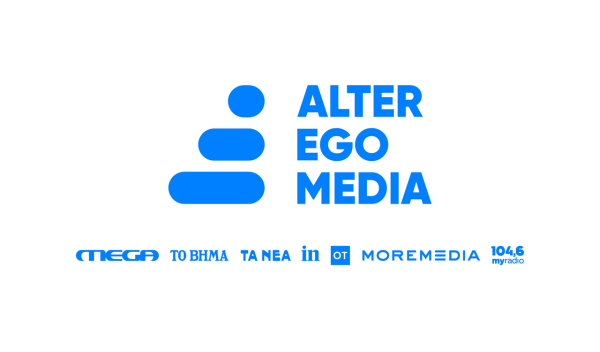
Alexander the Great is undoubtedly one of the most legendary figures in history, which artificial intelligence has now attempted to flesh out.
At the age of 18 he fought alongside his father Philip against Athens and Thebes at the Battle of Corinth, demonstrating his military prowess for the first time.
He was one of the greatest generals in history, and during his 13-year reign (336 – 323 BC) he conquered most of the then-known world to the east (Asia Minor, Persia, Egypt, etc.), reaching on the borders of India, and without having been defeated in any battle in which he participated.
He faced rivals and rebellions at every turn, but would go on to lead one of the greatest military campaigns in history against the vast Persian Empire, stretching from Greece to the Indian River.
Through the use of modern technology and historical records, researchers were able to create a facial reconstruction of what Alexander might have looked like in his lifetime.
This new understanding of Alexander’s appearance provides a fascinating insight into the life of this iconic figure.
Historians’ descriptions of his face
A fresco depicting a hunting scene in the tomb of Philip II, Alexander’s father, at the archaeological site of Aegis, is the only known surviving depiction of Alexander made during his lifetime, in the 330s BC.
Also, contemporary coins and the famous mosaic of Alexander the Great – a work of the 1st century BC. unearthed in Pompeii—depicts him with a “straight nose, slightly protruding jaw, full lips and eyes set deep beneath a strongly accentuated forehead,” as described by Krzysztof Nawotka in his 2010 study “Alexander the Great,” by Cambridge Scholars Publishing.
Although most statues of M. Alexander depict the same facial features of the young Macedonian king, historians have not reached a conclusion about his hair color, as reports from ancient historians are conflicting.
The ancient historian Aelianus (c. 175 – c. 235 AD), in his work “Varia Historia”, describes Alexander the Great’s hair color as blond, which could also mean yellowish, reddish or brown.
Latest News

IMF: US Tariffs Shake Global Economy, Outlook Downbeat
IMF slashes global growth forecast to 2.8% as U.S. tariffs create uncertainty and ‘negative supply shock

First Step Towards New Audiovisual Industry Hub in Drama
The project is set to contribute to the further development of Greece’s film industry and establish Drama as an audiovisual hub in the region

Airbnb Greece – Initial CoS Ruling Deems Tax Circular Unlawful
The case reached the Council of State following annulment applications filed by the Panhellenic Federation of Property Owners (POMIDA)

Mitsotakis Unveils €1 Billion Plan for Housing, Pensioners, Public investments
Greek Prime Minister Kyriakos Mitsotakis has announced a new set of economic support measures, worth 1 billion euros, aiming to provide financial relief to citizens.

Alter Ego Ventures Invests in Pioneering Gaming Company ‘Couch Heroes’
Alter Ego Ventures' participation in the share capital of Couch Heroes marks yet another investment by the Alter Ego Media Group in innovative companies with a focus on technology.

Corruption Still Plagues Greece’s Driving Tests
While traffic accidents continue to claim lives on Greek roads daily, irregularities and under-the-table dealings in the training and testing of new drivers remain disturbingly widespread

Pope Francis Died of Stroke and Heart Failure Vatican Confirms
As news of the official cause of death spread, tributes poured in from across the globe. The 1.4 billion-member Catholic Church is united in grief, remembering a pope who championed inclusion, justice, and compassion

Increase in Both Museum Visits, Revenues for 2024
As expected, the Acropolis was the top archeological site in the country, followed by Sounion, Mycenae, the ancient theater of Epidaurus, and Vergina in northern Greece

Where Greece’s Tourists Come From: A Look at 2025’s Top Visitor Markets
The United Kingdom continues to hold the top spot as the largest source of incoming tourism, with 5.6 million seats booked for Greece this summer — up 2.2% from last year. This accounts for 20% of all international air traffic to Greece

Pope Francis: A Pontiff Who Reshaped the Papacy and Sparked a Global Conversation
His first words from the balcony of St. Peter’s Basilica—“Brothers and sisters, good evening”—set the tone for a pontificate that would challenge norms, favor mercy over dogma, and bring the papacy closer to the people.












![Πλημμύρες: Σημειώθηκαν σε επίπεδα ρεκόρ στην Ευρώπη το 2024 [γράφημα]](https://www.ot.gr/wp-content/uploads/2025/04/FLOOD_HUNGRY-90x90.jpg)



![Ξενοδοχεία: Μεγάλο το ενδιαφέρον για επενδύσεις στην Ελλάδα – Η θέση της Αθήνας [γραφήματα]](https://www.ot.gr/wp-content/uploads/2025/03/Athens-hotels-90x90.jpg)








![ΔΝΤ: Καμπανάκι για δημόσιο χρέος από δασμούς και αμυντικές δαπάνες [γράφημα]](https://www.ot.gr/wp-content/uploads/2024/05/30859482_Sharone-perlstein-microfinanace-debt-800x500_c-600x375-1-1.jpg)















 Αριθμός Πιστοποίησης
Αριθμός Πιστοποίησης